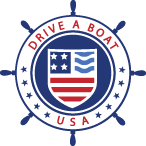Operating a Boat Under the Influence in California
In California, the regulations for drinking on a boat are different than they are for cars. However, boating under the influence in California can result in you losing your driver’s license, among other serious penalties.
Operating a boat requires clear thinking and quick reflexes, and doing so with alcohol in your system can endanger you, your passengers and the people around you. It’s important to use your best judgement and follow the law to keep yourself and others safe on the water.
In this article, find out about California’s legal alcohol limit for boating, the penalties for boating under the influence and how substances can impair your ability to operate a vessel effectively.
Can you drink on a boat in California?
Alcohol is allowed on board boats in California. Unlike with cars, the driver of a boat is also allowed to drink, as long as their blood alcohol content (BAC) doesn’t exceed the legal limit and they continue to operate the vessel in a safe manner.
However, it is illegal to operate a vessel under the influence of alcohol (i.e. if your driving is impaired by alcohol). This applies to all motorized vessels, from fishing boats and yachts to jet skis and water skis. Self-propelled boats (i.e. without a motor) such as kayaks are the only exemption to this rule.
California Harbors & Navigation Code 655 stipulates that there are two ways to be charged with a BUI on a recreational boat:
- If you have a BAC of 0.08% or higher
- If your driving is impaired by alcohol and/or drugs (regardless of BAC)
For commercial vessels such as ferries and tour boats, the boating alcohol limit is much stricter. You are deemed to be boating under the influence if your BAC is 0.04% or higher. For many people, just one drink is enough to reach this BAC.
It’s important to note that the legal drinking age in California is 21. Therefore, it is not legal for a minor to operate a boat after consuming alcohol under any circumstances.
Passengers over the age of 21 are allowed to drink as much alcohol as they want on board a boat.
Penalties for boating under the influence in California
In California, the penalties for boating under the influence depend on whether it is a first or subsequent offense and which section of the BUI law you have been convicted of breaking.
The potential penalties for a first-time BUI offense in California are as follows:
- Having your driver’s license revoked for 4 months or more – barred from driving any vehicle
- Up to 6 months in county jail
- A fine of up to $1,000
- 3-5 years of misdemeanor probation
- Enrollment in California DUI school
- Completion of a California boating safety course
These penalties increase in severity for repeat offenders, or if the BUI offense results in injury or death.
The effects of alcohol on boating performance
Operating a boat while consuming alcohol can be extremely dangerous and have very serious consequences. We recommend abstaining entirely or drinking very sparingly when operating a boat to avoid the following effects:
- Lack of concentration
- Slow reaction times
- Poor judgment
- Risky decision-making
- Reduced motor co-ordination
- Impaired vision
Fighting a BUI charge
If you feel you have been wrongly arrested for boating under the influence, you are entitled to fight your case. One of the most effective BUI defenses is to dispute the reason why your boat was stopped, because officers are not allowed to stop and detain a vessel without probable cause. If you believe that the Harbor Patrol stopped your boat for unfair reasons, such as your age, the type of boat you were operating, or your race, you have every right to appeal.
You should also fight your case if you were not actually intoxicated. People often make boating mistakes while sober for reasons such as exhaustion or distraction. Perhaps the arresting officer noticed that you took a dangerous sharp turn and wrongly accused you of being under the influence, or perhaps the breath or blood test you took showed a false positive. If this is the case, you should fight your BUI.
Learn more about boating safety with Drive a Boat USA!
When boating, there’s a lot of important information you need to know to ensure that you and your passengers stay safe. To that end, the state of California is currently implementing a requirement for recreational vessel operators to complete a boater education course, which is being phased in by age. By 2025, every pleasure boater will need to take a course and pass the exam to legally operate a vessel.
Drive a Boat USA offers a NASBLA-approved boating safety course that you can complete online to obtain your California boater card. Sign up today to kick-start your boating adventure! 😊

